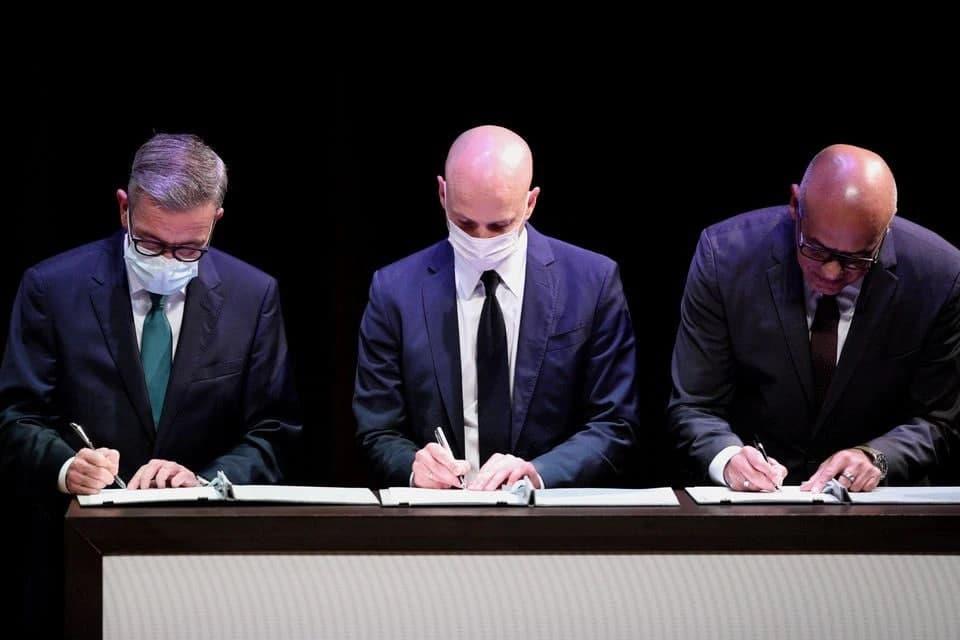MEXICO CITY, Aug 13 (Reuters) - Representatives of the Venezuelan government and the opposition began a round of talks on Friday in Mexico City aimed at overcoming Venezuela's acute political and economic crisis, which has caused millions to flee the Latin American nation.
Unlike previous negotiation efforts, the talks will include more than a dozen countries, among them the Netherlands, Russia, Bolivia, Turkey and Norway, which will act as the facilitator.
At the National Museum of Anthropology, the parties agreed to a memorandum of understanding containing the road map that will guide the dialogue process.
For the talks to advance to a potential agreement, Venezuelan President Nicolas Maduro demands that sanctions imposed by the United States and Europe on officials and institutions be lifted. Venezuela says the sanctions are responsible for the OPEC member's economic crisis.
For its part, the opposition coalition calls to allow humanitarian aid, including vaccines against COVID-19, to enter into Venezuela; the release of dozens of supporters whom it considers "political prisoners;" and guarantees it will be allowed to participate in regional elections in November.
"We already know what we do not agree on. ... The job now is to find points of confluence to guarantee the future and the happiness of the people of Venezuela," Jorge Rodriguez, president of Venezuela's parliament, said at the beginning of the talks.
The return to the negotiating table represents a turnaround for the opposition, which in the past accused Maduro of using dialogue to buy time and defuse international pressure. The Venezuelan government abandoned the 2019 dialogue, which took place in Barbados and Norway, after the United States tightened sanctions.
"Today we are beginning the second stage of a negotiation process that we know will be complex, which will surely have very difficult moments," said Gerardo Blyde, chair of the Venezuelan opposition delegation.
"Between these two sidewalks where each party supports narratives that seem diametrically opposed is a street full of hopeless and suffering citizens, our people," he added.
U.S. President Joe Biden has not relaxed sanctions against the financial and oil sectors of Venezuela since taking office in January and has maintained support for opposition leader Juan Guaido, who declared himself interim president in January 2019 after claiming there was fraud in Maduro's 2018 re-election.
"We are willing to review sanctions policies on the basis of significant progress in the negotiation. But that is what we need to see: significant progress," U.S. State Department spokesman Ned Price said on Thursday.
The Venezuelan crisis has generated a massive exodus that the Organization of American States recently estimated would reach 7 million people by 2022, the largest in the world, exceeding the likes of Syria.





